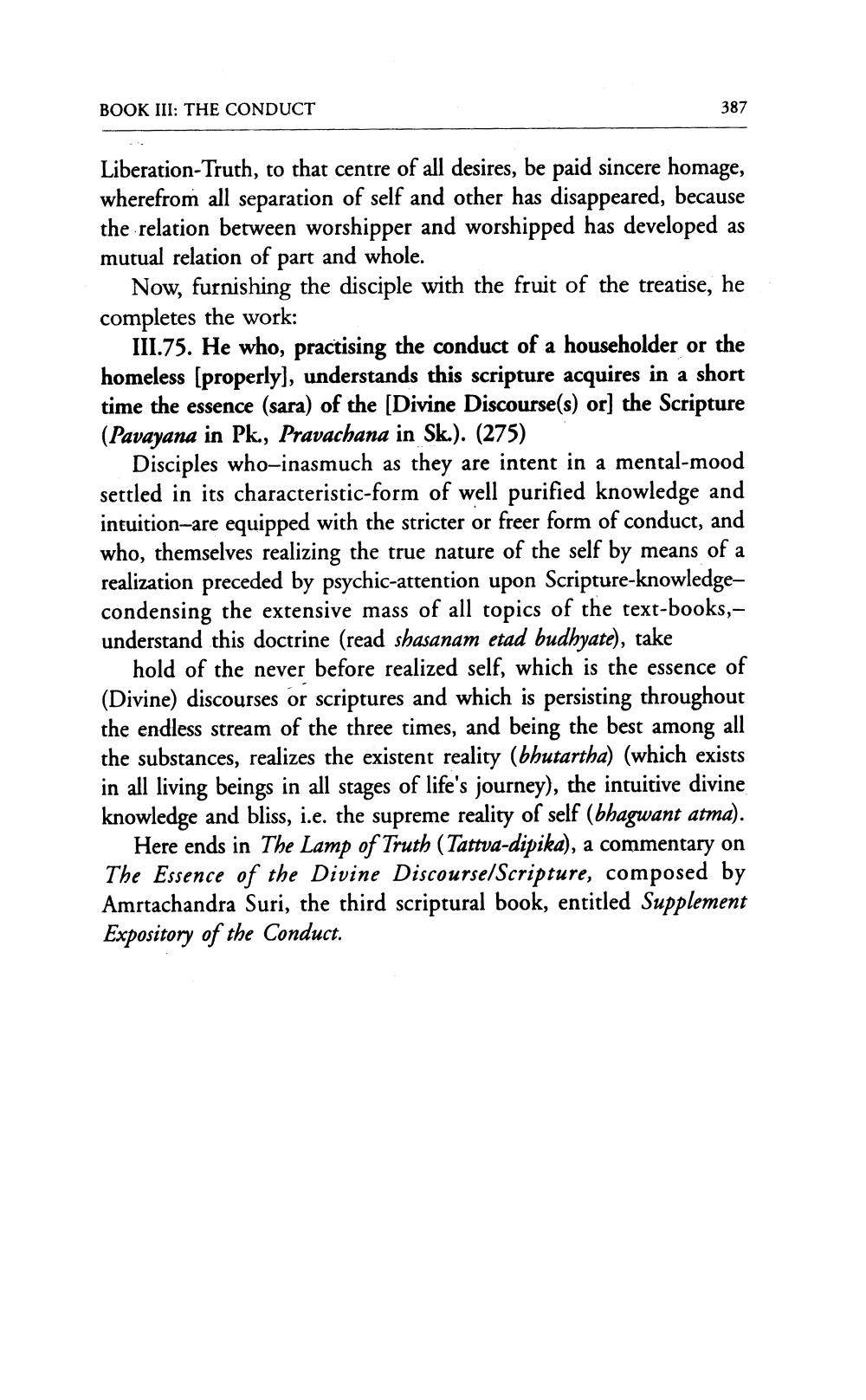________________
BOOK III: THE CONDUCT
387
Liberation-Truth, to that centre of all desires, be paid sincere homage, wherefrom all separation of self and other has disappeared, because the relation between worshipper and worshipped has developed as mutual relation of part and whole.
Now, furnishing the disciple with the fruit of the treatise, he completes the work:
III.75. He who, practising the conduct of a householder or the homeless [properly], understands this scripture acquires in a short time the essence (sara) of the [Divine Discourse(s) or] the Scripture (Pavayana in Pk., Pravachana in Sk.). (275)
Disciples who-inasmuch as they are intent in a mental-mood settled in its characteristic-form of well purified knowledge and intuition-are equipped with the stricter or freer form of conduct, and who, themselves realizing the true nature of the self by means of a realization preceded by psychic-attention upon Scripture-knowledgecondensing the extensive mass of all topics of the text-books,understand this doctrine (read shasanam etad budhyate), take
hold of the never before realized self, which is the essence of (Divine) discourses or scriptures and which is persisting throughout the endless stream of the three times, and being the best among all the substances, realizes the existent reality (bhutartha) (which exists in all living beings in all stages of life's journey), the intuitive divine knowledge and bliss, i.e. the supreme reality of self (bhagwant atma).
Here ends in The Lamp of Truth (Tattva-dipika), a commentary on The Essence of the Divine Discourse/Scripture, composed by Amrtachandra Suri, the third scriptural book, entitled Supplement Expository of the Conduct.




